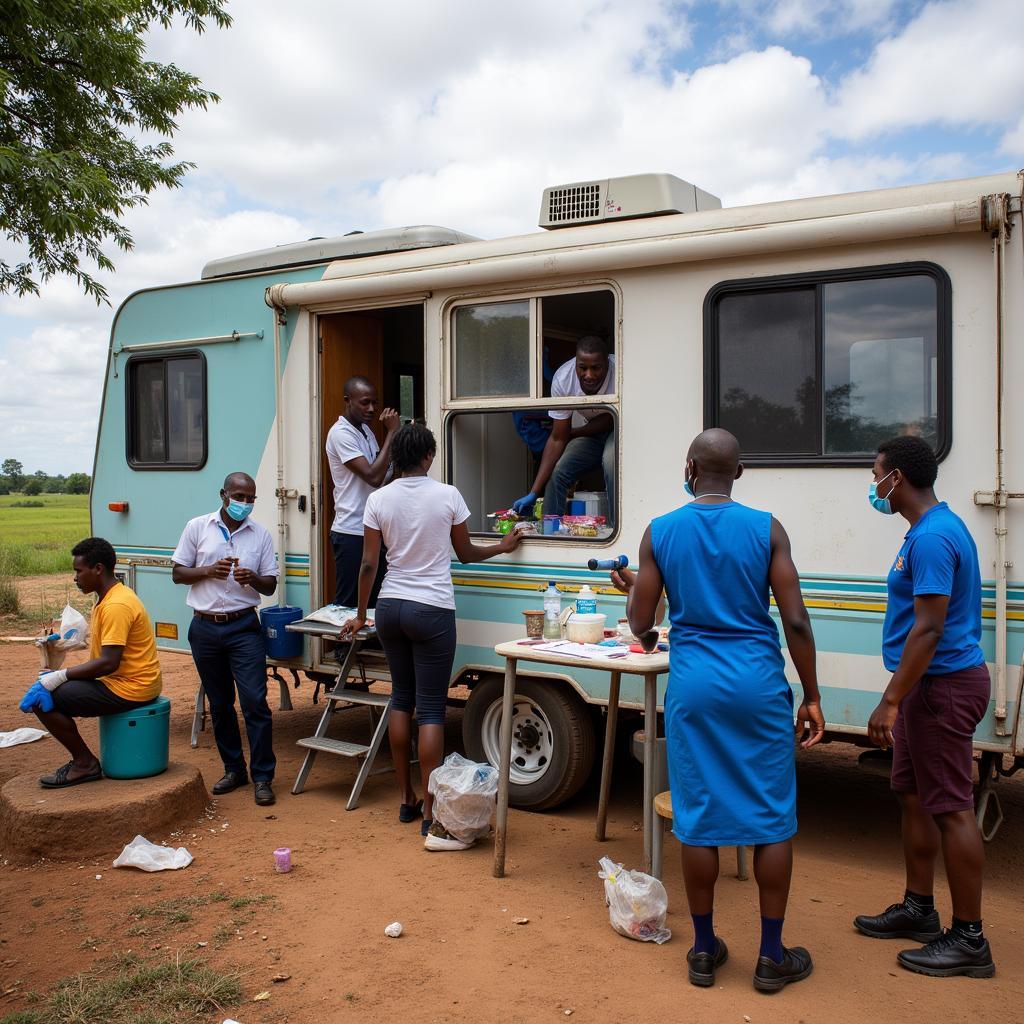Understanding the African Field Epidemiology Network (AFENET)
The African Field Epidemiology Network (AFENET) plays a crucial role in strengthening public health surveillance and disease outbreak response across Africa. This network of field epidemiologists is dedicated to improving disease detection, prevention, and control. This article explores the vital work of AFENET, its impact on public health, and its contributions to building a healthier future for the continent.
The Importance of AFENET in Disease Surveillance
AFENET’s core mission is to train and deploy field epidemiologists, the “disease detectives” who investigate outbreaks, track disease trends, and develop effective control measures. These epidemiologists are at the forefront of protecting public health, working tirelessly to prevent and mitigate the impact of infectious diseases. They are essential for gathering accurate data, analyzing it to understand disease patterns, and implementing targeted interventions.
AFENET’s work significantly impacts disease surveillance by providing timely and accurate information to guide public health decision-making. By strengthening surveillance systems, AFENET helps countries effectively respond to outbreaks and prevent widespread disease transmission. This network is especially critical in resource-limited settings where access to healthcare and public health infrastructure can be challenging.
How AFENET Trains the Next Generation of Epidemiologists
AFENET offers various training programs, including the flagship two-year Field Epidemiology Training Program (FETP). This rigorous program equips health professionals with the skills and knowledge needed to conduct field investigations, analyze data, and implement public health interventions. The FETP and other specialized courses provided by AFENET have contributed significantly to building a skilled workforce of epidemiologists across Africa. african field epidemiology network afenet kampala
AFENET’s Role in Outbreak Response
AFENET plays a crucial role in responding to disease outbreaks across Africa. The network’s rapid response teams are deployed to investigate outbreaks, identify the source of infection, and implement control measures. AFENET’s expertise has been instrumental in containing several major outbreaks, including Ebola, cholera, and measles. They work closely with governments and international organizations to coordinate response efforts and ensure effective disease control.
Responding to Emerging Infectious Diseases
As new infectious diseases emerge, AFENET is at the forefront of developing strategies for detection, prevention, and control. The network conducts research, develops guidelines, and provides training to health professionals on emerging threats. This proactive approach is vital for protecting public health and preventing widespread outbreaks.  AFENET's rapid response team tackling a disease outbreak
AFENET's rapid response team tackling a disease outbreak
“AFENET’s ability to rapidly deploy teams of skilled epidemiologists is critical for containing outbreaks and saving lives,” says Dr. Amina Konate, a fictional leading epidemiologist at AFENET.
Building Sustainable Public Health Systems
Beyond outbreak response, AFENET focuses on building sustainable public health systems. This includes strengthening laboratory capacity, improving data management systems, and enhancing surveillance networks. By investing in these essential components, AFENET helps countries develop the infrastructure needed to prevent and control diseases effectively.
Strengthening Collaborations and Partnerships
AFENET collaborates with various partners, including governments, international organizations, and research institutions. These partnerships are crucial for sharing knowledge, resources, and best practices. Working together, these organizations can achieve greater impact in improving public health outcomes across Africa. all african flags
“Collaborative efforts are essential for tackling complex public health challenges. AFENET’s partnerships are key to its success,” explains Dr. Joseph Otieno, another fictional expert and long-time collaborator with AFENET.
Conclusion
The African Field Epidemiology Network (AFENET) is a vital force in protecting public health in Africa. Through its training programs, outbreak response efforts, and focus on building sustainable public health systems, AFENET is making a significant contribution to improving health outcomes across the continent. Their work is essential for preventing and controlling infectious diseases and building a healthier future for all.
“Investing in field epidemiology is an investment in the health and well-being of our communities,” adds Dr. Konate.
Kêu gọi hành động: Khi cần hỗ trợ hãy liên hệ Số Điện Thoại: +255768904061, Email: [email protected] Hoặc đến địa chỉ: Mbarali DC Mawindi, Kangaga, Tanzania. Chúng tôi có đội ngũ chăm sóc khách hàng 24/7.

